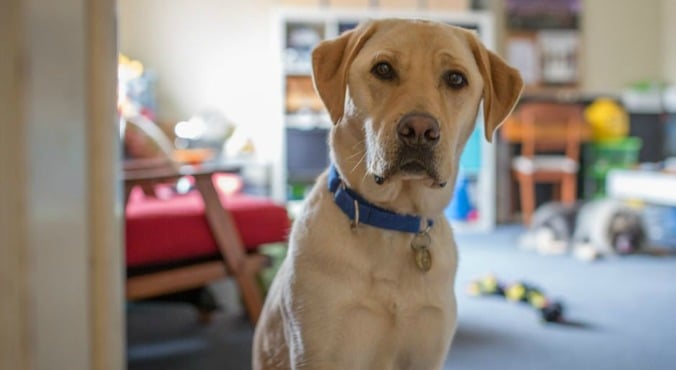
Image: ABC. By Kellie Scott.
Breaking up is hard to do, but it is no easy ride for your pet either who can be left with behavioural problems, feeling anxious or used as a pawn in legal proceedings.
Pets Behaving Badly animal behaviourist Kate Mornement said pets suffered during relationship breakdowns.
“I do see quite a few cases of pets with behaviour problems following separation or divorce… most commonly separation anxiety in dogs,” she told the ABC.
“Any big disruption to their normal routine or breaking of attachment bonds affects them a lot.”
But she said it could also be a positive when there was turmoil in the relationship.
“When couples do separate it’s often a positive if there’s been any sort of verbal or physical abuse pets witness, like kids, that can cause some stress and anxiety,” Ms Mornement said.
Flinders University PhD student Zoei Sutton studies human-companion animal relations and said a human-centric view of pet-keeping meant the pet did not always end up in the “right” home after a split.
“We tend to focus on how pets can help humans during times of separation or upheaval,” she said.
“Pets are often kept with the children as they are seen to provide a sense of ontological security to lessen the damage of separation on kids, however, this then can mean pets are shuttled between houses with kids rather than allowed to settle in one residence or can be left with the person not necessarily best suited to care for the animal.”





























































































